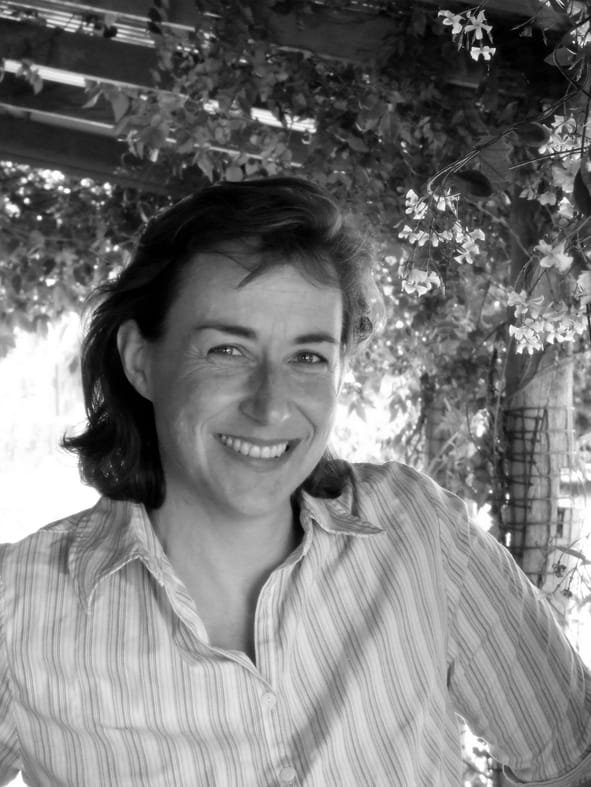
Cate Kennedy is an accompished author throughout a variety of genres, having just published her most recent work ‘New Australian Love Stories’.
Here Cate discusses her knowledge and observations on short story writing and editing with Sharona Lin.
You’re a very versatile writer and have written poetry, non-fiction, children’s books and short stories. How do these different areas of writing inform the others?
I like trying new forms, and seeing what kind of piece will ‘fit’ the idea I have, and how best to shape it. I don’t actually think of myself as a versatile writer, so feel happiest when the material itself suggests the shape. I’m still waiting to find subject matter that demands something I haven’t tried, but would like to, like a libretto, maybe!
Apart from length, how much do short stories really differ from longer form fiction?
Every writer would have something different to say about this, but what sets a memorable short story aside, for me, is discipline and compression. They’re closer to a poem or a song than a novel, and I’m sure there’s a lot to be thought about there in terms of cadence, pace and rhythm of the language they demand. Because they’re good at making a singular impact, they have a way of sneaking up on you which can feel artless or incidental, but nothing is actually incidental; it is all working together to create a completely unified effect. This takes time to hone and develop, so short stories are a bit more like a highwire act – everything you do is visible and focussed, taking place right in front of your reader’s eyes, every part balanced and considered. That’s something that’s hard to get right, and all too easy to get wrong. There can’t be any flat spots, or losses of concentrated attention. So I find my attention is very different when I am reading a short story; somehow the relationship between the writer and the reader becomes disciplined and compressed as well, connected through a shared close attention.
What is your favourite thing about short stories?
How capacious and malleable the form is, so that authors are always doing surprising things I admire and am astonished by.
What is the biggest misconception people have about short stories?
I’m not sure. I suppose the assumption that they’re easy to write, and easy to finish. Or that there’s nothing new to do with the short story form itself.
Which short story authors (both contemporary and other) do you admire?
At the moment I’m really enjoying George Saunders and Elizabeth McCracken – I’m also loving Jim Shepard’s “Like You’d Understand Anyway” and the work of Lorrie Moore and Nathan Englander.
You’re also an editor – how does that influence your writing, if at all? Speaking as an editor, what is the most common mistake people make when writing short stories?
I find editing makes me more critical of my own work and tends to silt up the process of trying to write fluently without overthinking it. If I had to find a common mistake, it’s that we’re unable to suspend our own disbelief enough to trust the power of the story. We wade in and intervene, we doubt our own instinct, we labour the point hoping we’ve made ourselves absolutely clear to the reader. So lots of stories seem weighed down with a kind of agonised hesitancy rather than boldness and confidence. Somehow we’ve got to learn to write without having “Technique” there at the forefront of our brains, seizing up the works and destroying flow. Easy to say, I know, but very hard to do unless you can forget about stressing over making it ‘right’ and just getting to the end of it to rewrite and reshape later. Earlier this year I heard Robin Hemley say something that’s stuck with me: someone asked him “How do you cure writer’s block?” and Robin shrugged and answered “Lower your standards.” I have found myself thinking a lot about this advice as it applies to the ‘inner critic’!
About Cate Kennedy
Cate Kennedy is an author and editor who has long had a love affair with the short story form. Her most recent collection is ‘Like a House on Fire’ which won the Queensland Literary award for a short story collection in 2013, and her most recent editing venture is ‘New Australian Love Stories’ (2014). She also writes poetry, non-fiction, children’s books and novels, and her work has been published both in Australia and internationally. Her first collection, ‘Dark Roots’, was shortlisted for the Steele Rudd Award in the Queensland Premier’s Literary Awards and for the Australian Literature Society Gold Medal, and is currently a text on the VCE Literature syllabus.
About Sharona Lin
Sharona Lin is the Program Intern at Writers Victoria. She is the founder and editor of Pop Culture-y and miscmoney.net, and also has opinions on Twitter.
